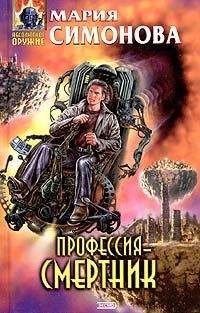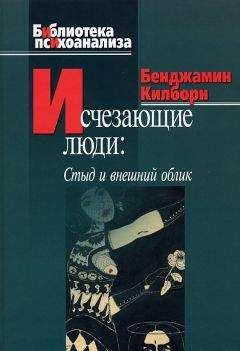Ed Lacy - Lead With Your Left
“'Put the coffee on,' my lover says in a sexy tone.”
“Babes, I have a lot of work to do. Look, you go back to bed and I'll stop someplace for coffee and juice.”
She poked my gut again as she drew away. “I'll make you coffee soon as I wash up.” You know how I am, Once I'm awake.”
I dressed while she was in the kitchenette. She had the radio on to an early morning record jockey and the music was hot. When I sat down for my Java Mary said, “Honest, Dave, you belong on Madison Avenue. You have a flair for wearing clothes. You look the part.”
“I've been on Madison Avenue, had a fixed post there during a strike. Madison Avenue and 114th Street.”
“Oh, stop talking about your awful job. I bet even the Commissioner forgets his work when he's home.”
“I was kidding. Getting warm fast, we'll be able to go to the beach soon.”
“I can picture us. When are you getting your vacation, in November?”
“Stop riding me, you know I'm junior man,” I said, sipping my coffee, thinking that if she didn't have her job we'd have plenty of time for the beach on my fifty-six-hour swing every week.
Mary kept stirring her cup. “Don't know how you can take coffee so hot. Dave, will you get in touch with Uncle Frank? At least be polite enough to see what he wants.”
“Okay. Tomorrow, when I'm off.”
Her face came alive. “Really?”
“As you said, at least I can be polite.” Frank wasn't a bad guy, good for laughs—long as he remained Uncle Frank and not bossman Frank.
“That's a promise now,” Mary said, coming around the tiny table and hugging me as she sat on my lap. I wanted to tell her she was pretty but not that pretty. Instead I held her against me with my left hand, finished the coffee with my right.
She suddenly said, “Ouch!” and sat up, rubbing her shoulder. “That damn holster is going to leave me black and blue yet.”
I damn near spilled the coffee on my pants. I tickled her bottom, making her jump to her feet With a gasp. I stood up and kissed her, said, “See you for supper—I hope,” and picked up my wrinkled suit from the floor on the way out.
Waiting for the elevator I checked my pockets again: badge, wallet, keys, pens, notebook, extra shells, touched the gun in its shoulder holster, and ran a hand over my hair. I left the suit at the corner tailor shop, bought the morning papers, and dropped into the first coffee pot I hit to have a slow cup of the junk and see what they had to say about Ed Owens. Not that it mattered what the papers said.
There was a picture of Owens in the alleyway and just a caption in the News. The Times surprised me by giving him a whole column. After a sentence—saying he'd been shot in a hold-up while carrying nonnegotiable bonds, they went on to say Owens and Wales had solved the murder of a Boots Brenner back in 1930. I never heard of the joker but the paper claimed he was well on his way to becoming the Al Capone of New York City when he was found in a vacant Brooklyn lot full of lead. “Within 24 hours, through brilliant detective work” Owens and Wales arrested a small-time bootlegger named Sal Kahn who was running a still near the lot where Brenner's body was found. Kahn had a record of several arrests for making and selling booze. He admitted killing Boots when the gangster tried to muscle in on an electric still Kahn was running. The still was an “amazing work of scientific ingenuity” and although Kahn pleaded self-defense, he died in the chair without revealing the name of his partner, who had built the still. Both Wales and Owens had been cited by the mayor for their fast work.
I gathered the politicians had been busting a “crime wave” and had used the death of a strong-arm goon to crow about how safe the city was.
I finished breakfast with a piece of candy, took the subway over to the precinct house, paying my fare. Seems dumb to me to advertise every day that you're a detective. I walked into the detective room a few minutes before eight. Danny Hayes was already there, breezing with a sleepy-looking fat slob named Ace who has a terrific memory for faces. I picked up the daily report sheet, read the arrests. There wasn't anything of interest except they had collared a clown named Hanson up on Washington Heights trying to pass a stiff check in a drugstore. Seems Hanson had bounced a check in the same store a few months ago. Most crooks are dumb as hell.
I said hello to Danny as I put the report sheet down. “How about this paperhanger Hanson, think he could be the phony doctor dropping rubber around here? He was working a drugstore.”
“We're going to check,” Danny said.
Ace waved a heavy hand at me and yawned. “Now I can go home and sleep in peace, the younger generation has things in hand. Will you look at that outfit. Where'd you spend the night, Dave, between the covers of Esquire?”
“Momma, who's the funny mans in the baggy suit and soiled sport shirt?” I said, thumbing my nose at him. “Gowan home, brawn, and let the brains take over. What's on the Owen's deal?”
“You still got seven minutes before your tour starts,” Ace said. “What you bucking for, Reed's job? Hate to have you in charge of the squad—you'd be a ballbreaker.”
“Cut the wisecracks, Ace. An ex-cop's been killed.”
Ace stood up, like a tent coming erect, and favored me with a belch. “Got special news for you, kid. The cemeteries are full of ex-cops. When our number comes up we go with the wagon too. There's nothing new on Owens, not a lead-one of those great big blank walls.”
“Lab come up with anything?”
“Nothing except he was killed with a .38.” Ace stretched and for some reason I suddenly thought of Mary.
“Ace, you married?”
He turned to stare at me, heavy arms still in mid-air, a dopey look on his fat face. “Sure I'm married. Now what the devil brought that brainstorm on? I was married before your pop told your ma, 'Let's try and make a David.' Why do you ask?”
“Nothing. Just... uh... thinking about cops' wives. Like this Owens' wife. What did she have to say?” I wanted to ask how Ace's wife felt about his being a cop—maybe they all complained like Mary—but he'd think I was flipping if I ever asked. I couldn't ask Danny: he was separated from his schoolteacher wife, but not because of the force—she caught him with another woman.
“I think Homicide talked to Mrs. Owens,” Ace said. “Gather they didn't have a chance to talk to her much, the shock had her on the ropes.”
“Anybody else questioned?”
Ace gave me a fat grin. “Being as I'm just a detective on the night tour Captain Lampkin hasn't time to go over all the details with me. Of course if I was young and with waves in my hair and on the day shift, why I could sit down and tell him how to work.”
“Everybody treats this as a big yak. We ought to spend a lot of time with Mrs. Owens, and with Wales, and dig into their past arrests. Plenty of work to do,” I said.
“There certainly is, Wintino, and you can start by getting me a buttered roll and a container of coffee—light. Too tired to eat this morning,” a voice said behind me.
I turned and Lieutenant Reed was standing in the doorway kind of stooped as though afraid of bumping his bald dome. He had tired circles under his eyes and needed a shave. I said, “Certainly, Lieutenant,” and took the two bits he held out.
Downstairs they were turning out the platoon and I waited a moment till that was over, then ran across the street to the delicatessen. I didn't like the idea of Reed using me as coffee boy but then he had the other members of the squad hustling Java for him too, sometimes. And it was about time he learned coffee and a buttered roll was thirty-two cents.
I had to wait till a fresh pot was brewed and I returned to find a tall, well-set-up guy, about thirty-seven, sitting with Reed. The guy had a brown gabardine suit that had to be custom-made the way it fitted like a grape skin. He looked real sharp in a tab collar and a narrow dark brown tie. His hair was combed slick, he had one of these large rugged faces, and his gut was so flat he was probably wearing a girdle.
As I put the bag on the desk Reed said, “This is Detective Austin from Homicide. You've met Detective Hayes; this is his partner, Detective Wintino. They, were the first of my squad to reach Owens.”
Austin nodded at me and said, “You must have shrunk since you took the physical.- Never figured you for five eight.” He had a booming clear voice that went with his beefy good looks.
“I was wearing elevator shoes at the time. They send you up here to check my height?” I asked.
Austin winked at Reed. “Rough little stud.”
“Tries to be, anyway. And at times he is. Captain Lampkin wants you to have a talk with Mrs. Owens. That's about the only angle we haven't covered thoroughly. I suggest you go over to her flat now. I'm sending Hayes downtown to the line-up to look over a rubber check artist we're interested in, so take Wintino with you.” Reed glanced at the wall clock. “Unless she gives you something, be back here around ten.”
“Anything you say, Lieutenant. Frankly I don't believe it will get us anywheres, but it will make the old lady feel we're on the job,” Austin said, getting to his feet.
He wasn't so big, it was just the sharp fit of the suit and his big face. He picked up a pork pie hat I would have liked —if I ever wore a hat. I whispered to Danny, “You're lucky, I'm stuck with glamour boy. Dresses like this is the FBI.”
Danny smiled, showing his stubby teeth. “Glamour boy? Didn't you look in the mirror this morning? I ought to be back from downtown by noon, Dave. Maybe we'll have Chinese food for lunch.”
I got a car downstairs and drove Austin up to the Bronx. He said, “Getting warm. I don't like heat unless I'm in a bathing suit. Reed say that colored boy was your partner?”
“Yeah.”
“That's rough. I always say they should—”
“What's rough about it?” I cut in, knowing what was coming. “Danny's a hard worker and smart—that's all I ask of a partner. Have you seen Owens' old partner, Al Wales?”
“No, but I hear he looks like a creep.”
“Seems they made an important collar back in 1930. Got a guy who killed a hot-shot goon named Boots Brenner. Ever hear of Brenner?”
Austin nodded as he took out a pack of butts, offered me one. “I remember reading about Brenner someplace. Punk who wanted to be a second Vince Coll, tougher than tough stuff. Want a smoke?”
“I don't smoke. Thanks.”
“You must have made a fortune when you were in the army. Or weren't you old enough to be in during the war?”
“I did my time after the war. What about this Boots Brenner?” I asked, a little steamed.
“Like I told you, a punk. Started to cut into the big pie but got himself killed before the big boys took much notice of him. What's he got to do with Owens?”
“I don't know, yet. I'd like to have another talk with Wales. Of course the guy they rapped for killing Boots sat in the chair, but I have a feeling we ought to dig deeper into their arrest record,” I said turning into 145th Street and stopping for a light. I didn't have the siren on.
I wouldn't have minded so much if Austin had laughed. He chuckled. “Don't go off the deep end, shortie. This wasn't any revenge killing, it was a stick-up and a lousy one. If anybody had merely wanted to plug Owens they wouldn't have bothered walking him into an alley on West End Avenue.”
“If it was a stick-up Owens would have put up a fight and he didn't.”
“How do we know he would have?”
“Wales says Owens was handy with a gun and his hands.”
Austin chuckled again. “Maybe years ago, but yesterday Owens was an old man. And no matter how tough a guy is, a jittery stick-up character may squeeze the trigger first and talk later. Tell you the truth, we're only going through the motions. Know when this will be solved? In a year or two or three we'll pick up some junkie or a loony on another charge, probably another killing, and in the course of grilling him he'll confess to killing Owens. Cases like this follow a pattern.”
“No. I have a... a... feeling this was more than a hold-up. The worthless bonds, the torn pockets, for example, make me uneasy.”
Austin let me have the chuckle again. “You sound like a song, 'that old feeling.' Better gag than anything I've seen on TV this week. Keep your feelings for your girl friends.”
I shut up. When we reached Third Avenue I turned downtown and then east again and we were in a neighborhood of run-down wooden private houses, most of them with tiny lawns bordered by a struggling bush or even flowers. It was like a couple of blocks of some hick town set down in New York City. I pulled up before one that had a few busted chairs on the porch, chairs that had been left out all winter, a lot of winters. It was a squat two-family house, badly in need of paint and new shingles. I said, “This is it.”
“Some dump.” Austin took out his notebook, checking the address. “Imagine a guy ever wanting to buy one of these joints? Let's get it over with.”
The Owens apartment was the bottom one and the woman who opened the door was dressed in a clean worn house dress that looked too heavy for May. She was plump, lots of veins in her fat legs, and her moon-shaped flabby face was topped with dirty gray hair braided around her head. Her eyes were red and the skin around them looked raw. Austin took off his hat as he asked, “Mrs. Edward Owens?”
“Yes, but if you're reporters I—”
“I'm Detective Austin and this is Detective... Winston.”
“Wintino, David Wintino, Mrs. Owens,” I told her.
“I know you've been under a terrific strain, an ordeal, but we're on police business and would appreciate it if you would answer a few questions.” The sugar in Austin's voice sounded phony as hell.
“I understand. I'm sorry I wasn't able to talk much last night. Last night... God, I still can't believe it. Step inside, please,” Mrs. Owens said, holding the door open. Her hands were short and covered with spots like large freckles.
We walked into an old-fashioned neat living room: a clumsy big radio set with a million dials that probably still ran on A and B batteries, an old seven-inch TV set in a large cabinet, an upright piano, two leather chairs, a couple of plain ones, and a couch that looked hard. Atop the piano there was a picture of a plain-faced girl with fat cheeks, about eighteen, and a cracked picture in a gold frame of a towheaded boy of about twelve.



